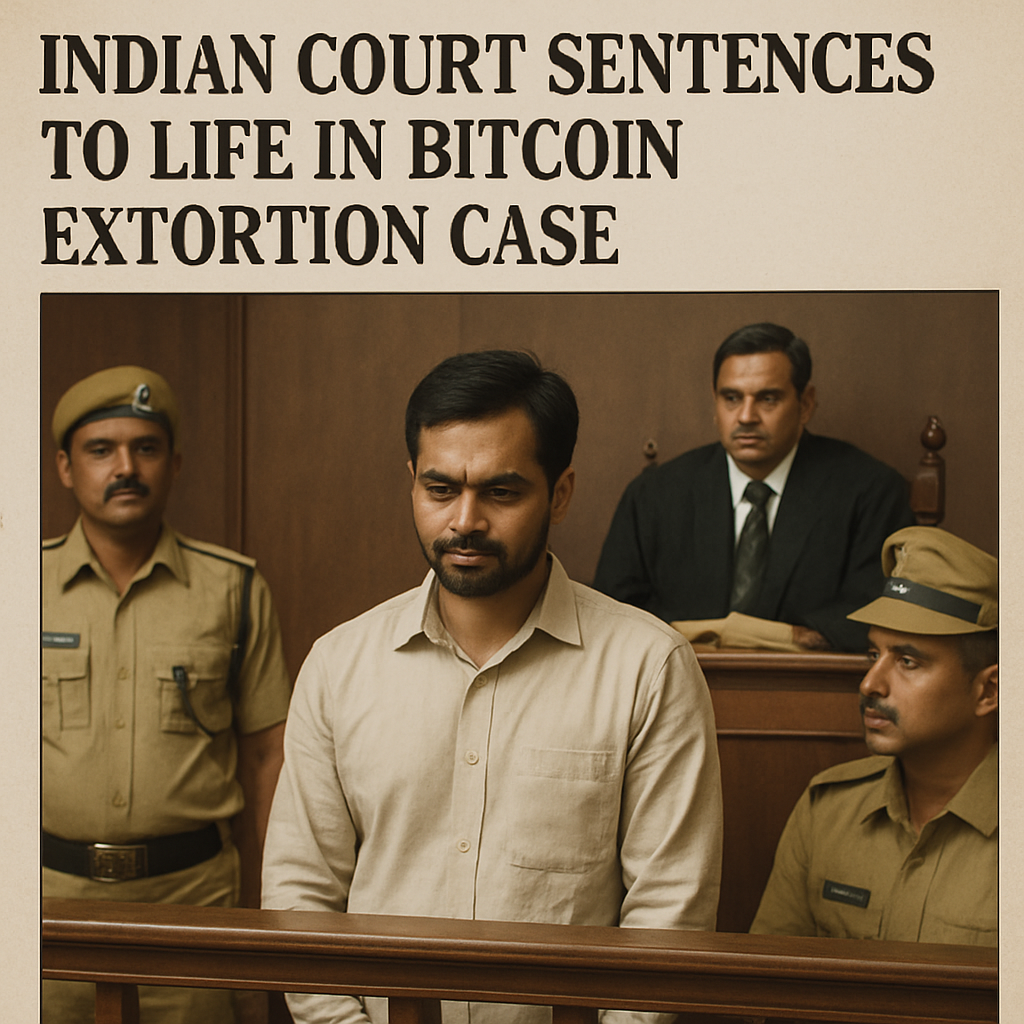An Indian anti-corruption court in Ahmedabad has handed down life sentences to 14 defendants involved in a high-profile Bitcoin extortion case dating back to 2018. The convictions include 11 serving and former police officers alongside one ex-legislator, all found guilty of criminal conspiracy, kidnapping for ransom, illegal detention and assault. Presiding Special Judge B.B. Jadav concluded that the group conspired to abduct Surat businessman Shailesh Bhatt to force the transfer of his Bitcoin holdings.
The extortion ring targeted Bhatt after he recovered a portion of his investment from the collapsed BitConnect project. Dhaval Mavani, a developer associated with that scheme, had returned 752 BTC to Bhatt, prompting senior officers—including former Amreli district superintendent Jagdish Patel and ex-MLA Nalin Kotadiya—to orchestrate the abduction. They illegally detained Bhatt at Keshav Farm near Gandhinagar, physically assaulted him, and coerced him into admitting possession of 176 BTC with an associate. Forcible sales and cash extortion yielded roughly $150,000 in initial payments, but the full ransom demand remained unfulfilled.
The court heard testimony from 173 witnesses over months of proceedings. Evidence included recorded statements, forensic analysis of transaction flows, and witness accounts of assault. Convicted officers face charges under the Prevention of Corruption Act for misconduct by public servants. The judgment also orders seizure of gold ornaments and other assets recovered during raids on accused officers’ homes, to be surrendered to the Master of Mint in Mumbai. Authorities warned that any facilitation of crypto laundering by colluding officials will prompt further probes.
This landmark ruling underscores ongoing concerns around cryptocurrency-enabled crime in India. While digital asset adoption expands, law enforcement agencies face challenges in tracing illicit flows due to pseudonymous transaction structures. Experts highlight the importance of on-chain analytics tools and stronger KYC protocols for exchanges to deter fund misuse. The court’s decision signals judicial willingness to impose stringent sanctions on breaches implicating public officials, offering a deterrent message to those exploiting digital currencies for corrupt gains.

Comments (0)